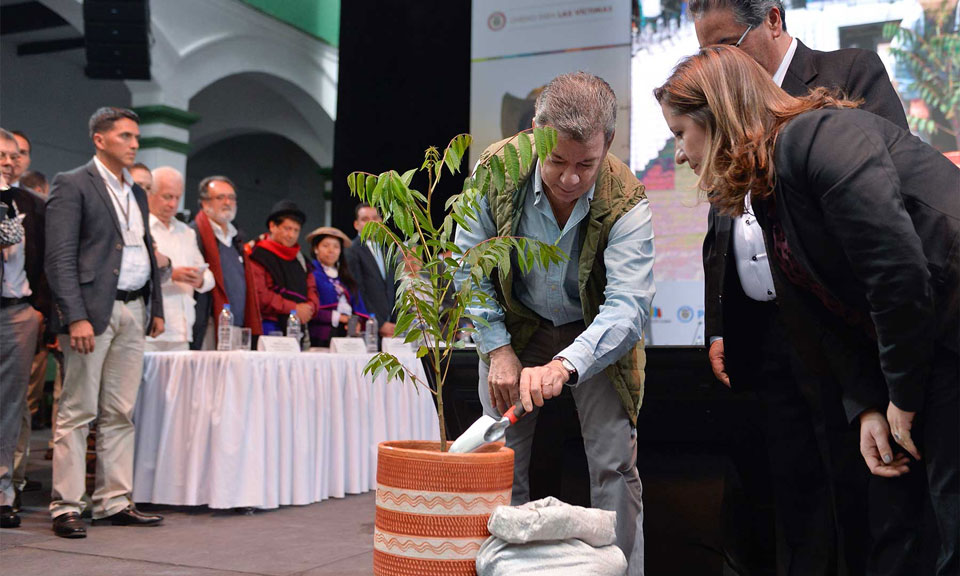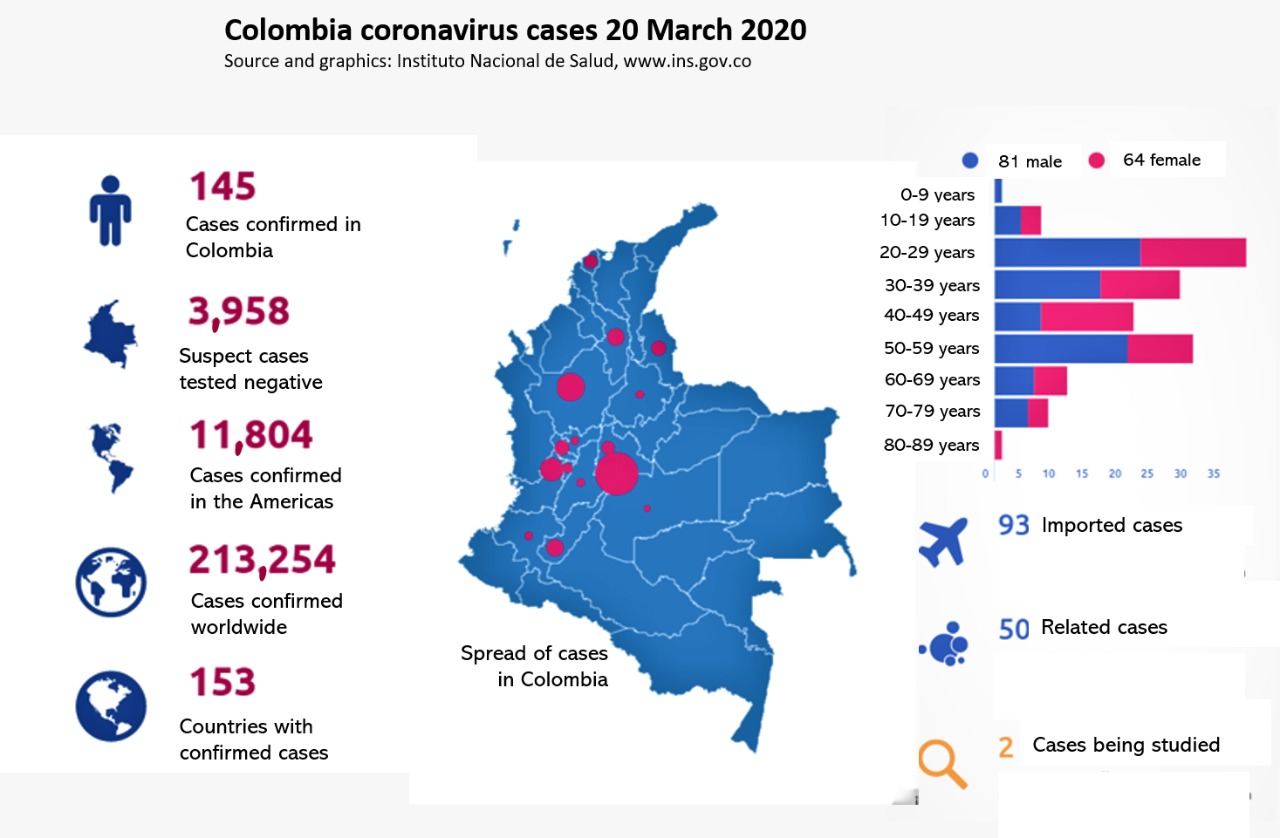
Environment Minister Gabriel Vallejo López speaking on Colombia’s commitments to energy efficiency.
Colombia pledges to cut carbon emissions by 20 percent by 2030 as part of its UN Climate Change commitments
Colombia has committed to reduce carbon emissions by 20 percent by 2030, President Juan Manuel Santos announced on July 20.
The initiative represents Colombia’s part in the United Nations Framework Convention on Climate Change (UNFCCC), which 196 states have signed up to, with the aim of keeping global warming below 2°C.
The convention will meet in Paris at the end of this year for the 21st session of the conference, known as ‘Paris 2015’. Each nation will submit its own proposals for reducing emissions before the summit in November, setting out their ambitions and methods.
Environment Minister, Gabriel Vallejo López, said Colombia’s plans will focus on tackling deforestation, increasing energy efficiency, creating sources of renewable energy and upgrading public transport buses with hybrid vehicles.
“This commitment that Colombia is making means transforming our economy towards a more efficient use of resources and energy,” Vallejo said in a statement.
Environmental NGO, Resources for the Future, says that although Colombia has lead the way in Latin America for environmental management, the country still faces “serious environmental and natural resource challenges.”
They raise concerns about air pollution, water pollution, illegal waste, deforestation and soil degradation.
Another step taken by the central Government to protect the environment was the announcement this May of the suspension of aerial spraying with glyphosate to kill coca plantations.
The decision has had fierce opposition from some political figures such as ex-president and current senator Alvaro Uribe and the Procurador Alejandro Ordoñez, who say that it will only lead to a spike in illegal coca farming.





